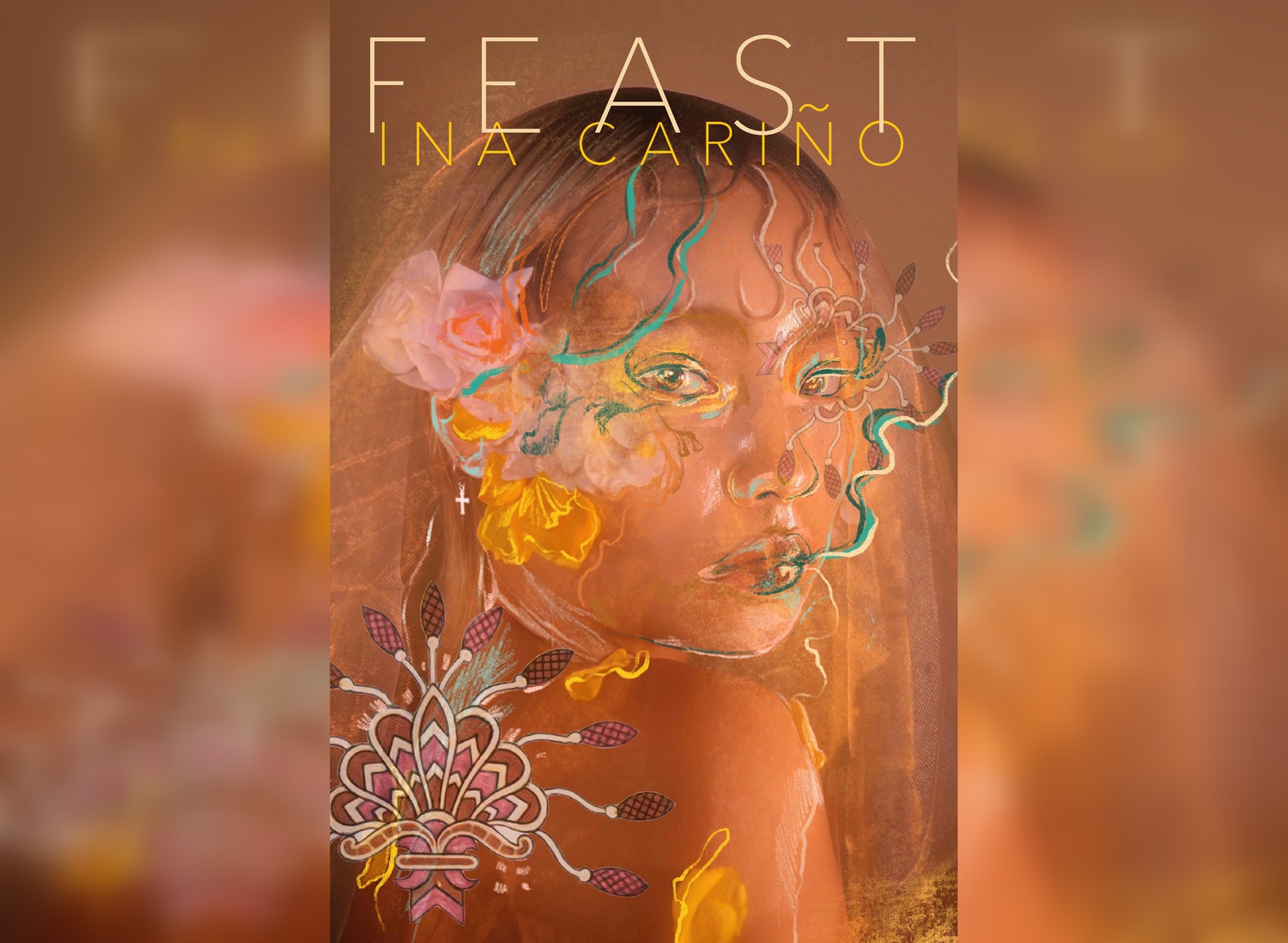
News
Summers Will Not Finish Semester of Teaching as Harvard Investigates Epstein Ties

News
Harvard College Students Report Favoring Divestment from Israel in HUA Survey

News
‘He Should Resign’: Harvard Undergrads Take Hard Line Against Summers Over Epstein Scandal

News
Harvard To Launch New Investigation Into Epstein’s Ties to Summers, Other University Affiliates

News
Harvard Students To Vote on Divestment From Israel in Inaugural HUA Election Survey
‘Feast’ Review: Ina Cariño’s Dazzling Debut
4 Stars

Ina Cariño has a heavy hunger: for family, for the self that arises from it, and for the living memories it creates. Cariño, a Filipinx American poet, is a 2022 Whiting Award winner who released their intimate debut poetry collection Feast in March 2023 under Alice James Books. Throughout the 35 poems in this collection, Cariño’s community sings. Lolo and lola, tito and tita, elders, parents, cousins, and country all have a place in their words.
Cariño unflinchingly examines the dual realities of personhood: being as an autonomous self, and being as an extension of the generations that gave you life. They were born in the Philippines and moved to the United States at 10 years old. Their poems interweave cultural notes from their country, such as words in Tagalog, Cariño’s native language, as well as ingredients in traditional Filipino foods and religious experiences.
In a poem titled “Rice,” Cariño writes, “I listen in half-light breathe still tilt my ear / as memories of lola float up with the milkscent / over her shallow basket she’d clean the rice.” Cariño’s themes have a beautiful continuity throughout the collection. Rice is mentioned in several poems, including the final work in this collection, “It Feels Good To Cook Rice.” In this poem, Cariño describes how many members of their family have passed away before stating, “it feels good to eat rice even by myself.” Time does not operate linearly in this collection, and those who have passed on do not lose their connection to the present. This is a powerful portrayal of how cultural and familial teachings live on.
In a discussion with Angela Narciso Torres for the New England Review, Cariño explained that they did not italicize Tagalog words in the opening poem to this collection, “Bitter Melon,” because they did not want to signify Tagalog as having “foreignness” or being “other” — which to Cariño, it is not. Rather, the use of words in Tagalog stimulates a conversation between reader and poet, as readers unfamiliar with Tagalog are required to look up these words if they want to truly understand the poem. When the reader takes this extra care, the true nature of Cariño’s poems are revealed: They are teeming with a life and energy that a reader simply cannot grasp if they do not make an effort to understand the language.
In the poem “Bitter Melon,” Cariño refers to the bitter melon, a vegetable called “ampalaya” in the Tagalog language, with its Tagalog name. She also incorporates other Tagalog words and phrases, writing that “you’ll wince. you’ll think of the taste / of your own green body—mapait / ang lasa. your sneer. masakit, dugo’t / laman. it hurts, this smack of bitter.” In this poem, Cariño creates a connection to any diasporic reader who has grown up with the experience of eating the bitter vegetable. Many of the poems in this collection are grounded in similar lived experiences, and thus readers who grew up with the same backgrounds can find a familiar home in Cariño’s words.
Cariño’s collection adeptly grapples with the tensions of existing in the United States as an immigrant and a queer person alongside the beauty of Filipino culture and lineage. Their debut feels boldly autobiographical, and “Feast” does not hesitate to use the physical body as a canvas to explore these themes.
For instance, the poem “Soiled” follows a child with head lice. Cariño viscerally describes the collaborative process as a parent removes lice from the child’s hair: “edge pressed to keratin edge— / pop!—until the sacs burst & spray. / tiny teardrops, harmless. / sometimes, there is blood. / soon our own lunar cuticles are dotted / with my own wet crimson.” Among the poems in this collection, “Soiled” is no outlier in its use of graphic imagery. Cariño’s work feels intentionally candid in detailing the physicality of human bodies, as if Cariño is attempting to mitigate the shame often felt from biological existence.
The title of a poem near the end of the collection, “Piyesta,” is translated and defined in an explanatory note: “Feast: n. A large meal, typically held as a celebration.” This impressive debut is certainly a celebration of culture, of family, of the Philippines, and of the human body. There is no doubt that Ina Cariño is an important poet of our age, one who will not hesitate to share the stories they find in beautifully gripping detail.
—Staff writer Lena M. Tinker can be reached at lena.tinker@thecrimson.com.
Want to keep up with breaking news? Subscribe to our email newsletter.
